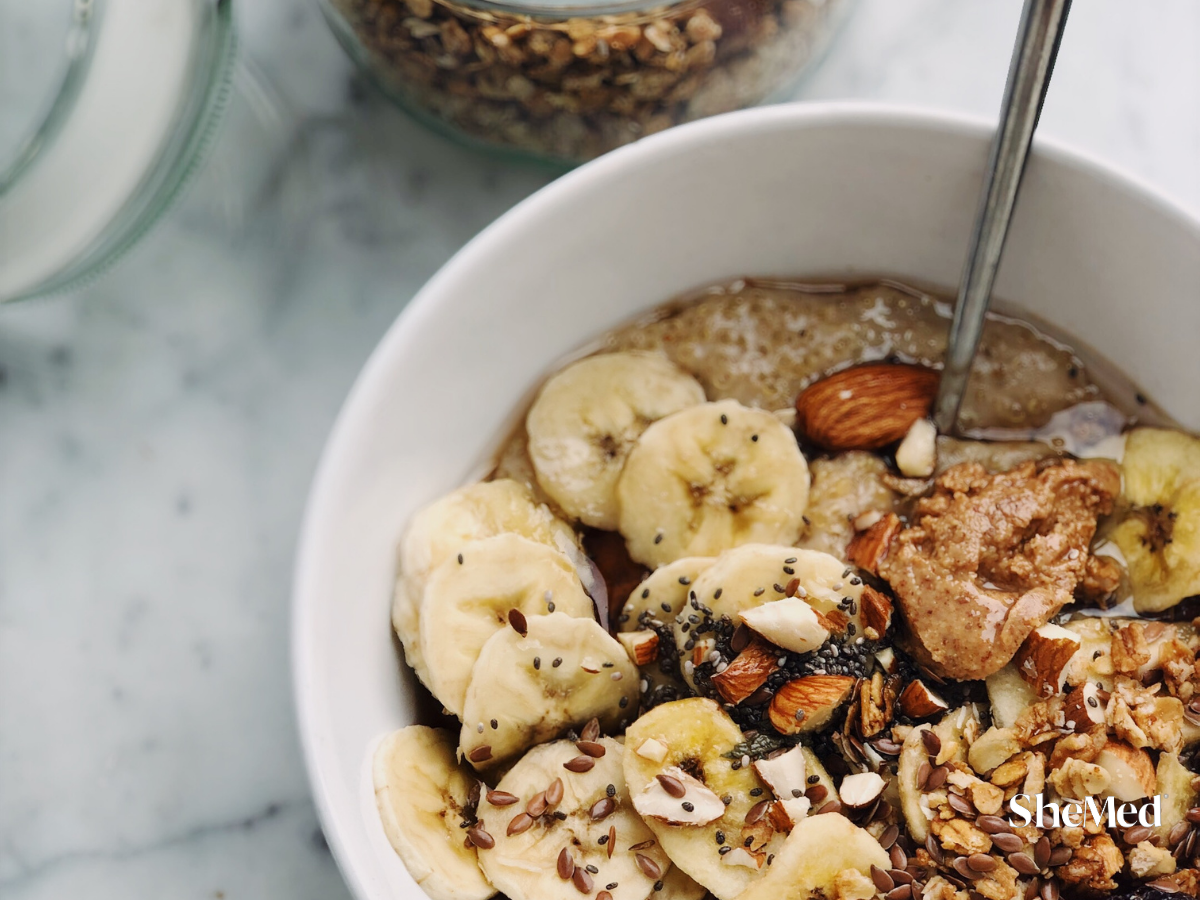
Have you ever felt like no matter how hard you push yourself, the weight just doesn’t seem to come off? Many women in the UK face this frustration, trying every fad diet or intense workout, only to be left exhausted and disheartened. What if you are told that 80% of weight loss success isn’t about brutal workouts, but about gentle, consistent movement and balance?
It’s easy to feel stuck when the scale doesn’t budge, especially when you’re doing everything "right." This frustration is all too common for women trying to lose weight, especially when stress and busy schedules leave little room for self-care. The desire to feel lighter, healthier, and more confident is universal, yet the solution might not be what you'd expect.
The problem is that traditional weight loss methods often focus solely on burning calories through high-impact workouts, overlooking the power of practices like yoga and stretching. These gentle forms of exercise not only help tone your body but also promote mental clarity, reduce stress, and boost your metabolism—all factors that are critical to achieving long-term weight loss.

Understanding Weight Loss
Weight loss is a multifaceted process influenced by various interrelated factors, including diet, exercise, genetics, and lifestyle. Understanding these factors is essential for effective weight management.
Factors Affecting Weight Loss
- Diet: The caloric balance is fundamental to weight loss. Consuming fewer calories than expended leads to weight reduction. A systematic review on dietary management of obesity found that dietary patterns rich in whole foods and low in processed foods are associated with successful weight loss outcomes. The National Diet and Nutrition Survey in the UK indicated that adults consume an average of 2,000 calories per day, with many exceeding this amount, contributing to obesity .
- Exercise: Regular physical activity is crucial for weight management. The Overview of Current Physical Activity recommends at least 150 minutes of moderate-intensity aerobic activity weekly for weight loss maintenance. A study published in the BMC Public Health demonstrated that individuals who engaged in regular exercise lost significantly more weight compared to those who relied solely on dietary changes.
- Genetics: Genetics plays a significant role in an individual’s predisposition to obesity. Research indicates that genetic factors can account for 30% to 70% of the variance in body mass index (BMI) among individuals. Studies have identified over 400 genes associated with weight regulation, influencing appetite, metabolism, and fat distribution.
- Lifestyle Factors: Lifestyle habits such as sleep quality, stress levels, and socioeconomic status also influence weight loss. Insufficient sleep has been linked to increased hunger and calorie consumption, as noted by the National Institutes of Health (NIH) . Chronic stress elevates cortisol levels, which can lead to increased appetite and fat accumulation, particularly around the abdomen.
- Yoga and Stretching: Incorporating yoga into a fitness regime can enhance flexibility, strength, and mental well-being. A study published in The Journal of Alternative and Complementary Medicine found that participants practising yoga regularly showed significant reductions in body weight and waist circumference compared to those who did not engage in yoga .
The Benefits of Yoga for Weight Loss
Yoga is increasingly recognized not just for its mental and spiritual benefits, but also for its role in weight management.
Physical Benefits of Yoga
While yoga may not burn as many calories as high-intensity workouts, it can still contribute significantly to weight loss. Research shows that people practising Hatha yoga burned approximately 120 calories in 30 minutes for a 57kg individual, 144 calories for a 70kg individual, and 168 calories for a 84kg individual. More vigorous styles like Vinyasa or Power Yoga can increase calorie expenditure further due to their dynamic nature.
Additionally, a clinical trial on yoga in women with abdominal obesity showed that practising yoga for 90 minutes twice a week over 12 weeks resulted in significant reductions in body weight, waist circumference, and body fat percentage. This indicates that yoga can effectively aid in fat loss while also improving muscle mass.
Improved Muscle Tone: Yoga enhances muscle tone through various poses that engage multiple muscle groups. A study published in Complementary Therapies in Medicine demonstrated that participants who practised yoga showed improvements in muscle strength and flexibility alongside reductions in body fat. This toning effect is crucial for increasing resting metabolic rate, which helps burn more calories even at rest.
Mental Benefits of Yoga
Stress Reduction
Chronic stress is a significant contributor to weight gain due to its association with increased cortisol levels, which can lead to cravings for unhealthy foods. Research from Harvard Medical School shows that regular yoga practice can reduce cortisol levels, thereby alleviating stress-related eating behaviours. Participants reported fewer cravings and reduced emotional eating after engaging in yoga sessions.
Improved Mood and Body Positivity
Yoga promotes mindfulness and self-acceptance, which can enhance overall mood and body image. A study indicated that individuals who practised yoga reported greater body satisfaction and lower levels of disordered eating behaviours . This psychological shift can lead to healthier food choices and a more positive relationship with one’s body.
Specific Yoga Poses for Weight Loss
Certain yoga poses are particularly effective for enhancing weight management:
- Sun Salutations (Surya Namaskar): This sequence involves a series of linked poses that create a flowing practice, engaging multiple muscle groups and promoting cardiovascular activity. Regular practice can significantly boost metabolism and energy levels.
- Warrior Poses (Virabhadrasana I & II): These powerful poses build strength in the legs, core, and upper body while improving balance. They engage major muscle groups, which helps promote muscle tone and enhance calorie expenditure.
- Boat Pose (Navasana): This pose targets the abdominal muscles, helping to strengthen the core while improving overall stability. It is effective for building muscle strength and enhancing awareness of body alignment.
The Importance of Stretching
Stretching is a fundamental aspect of physical fitness that enhances flexibility, promotes muscle recovery, and reduces the risk of injuries.
- Enhancing Flexibility: Stretching significantly improves flexibility, which is crucial for overall physical performance. A study published in the European Journal of Physical Education and Sports Sciences found that regular stretching increased range of motion in participants, which is essential for optimal movement patterns during physical activities. Improved flexibility can lead to better performance in sports and daily activities.
- Improving Posture: Stretching can also enhance posture by lengthening tight muscles that may contribute to poor alignment. Research indicates that individuals who engage in regular stretching routines report improved posture and reduced musculoskeletal discomfort. A clinical trial involving office workers showed that a stretching program led to significant improvements in posture and a reduction in neck and back pain .
- Reducing Injury Risk: Stretching before physical activity can help reduce the risk of injuries. A systematic review in Sports Medicine concluded that dynamic stretching before exercise is effective in preventing injuries, particularly in sports involving high-intensity movements. The review highlighted that athletes who incorporated stretching into their warm-up routines experienced fewer injuries compared to those who did not.
- Aiding Muscle Recovery After Workouts: Stretching plays a vital role in muscle recovery post-exercise. According to a study published in Science for Sport, post-exercise static stretching can enhance recovery by increasing blood flow to the muscles, thereby delivering essential nutrients and removing metabolic waste products. While the effect on muscle soreness may be modest, research indicates that stretching can help regain pre-exercise ranges of motion more quickly .
- Delayed Onset Muscle Soreness (DOMS): The effectiveness of stretching in reducing DOMS has been debated. A systematic review found that while post-exercise stretching did not significantly reduce muscle soreness 24 to 72 hours after exercise, it did improve flexibility and range of motion, which are beneficial for overall recovery. This suggests that while stretching may not eliminate soreness entirely, it contributes positively to recovery processes.
Recommended Stretching Exercises
Incorporating specific stretches into your routine can enhance flexibility and aid recovery:
- Hamstring Stretch: This stretch targets the hamstrings, which are often tight after leg workouts. To perform:Sit on the floor with one leg extended and the other bent.
- Quadriceps Stretch: This stretch helps relieve tension in the quadriceps:Stand on one leg and pull your other foot towards your glutes.
- Calf Stretch: This stretch targets the calf muscles:Stand facing a wall with one foot forward and one foot back.
- Child’s Pose: A restorative stretch that relaxes the back:Kneel on the floor, sit back on your heels, and extend your arms forward on the ground.
Combining Yoga and Stretching for Optimal Results
Integrating yoga and stretching into a holistic weight loss program can enhance flexibility, improve muscle tone, and support mental well-being.
- Incorporate Both Practices: A balanced routine can effectively combine yoga and stretching to optimise weight loss. Research indicates that yoga can burn approximately 200-500 calories per hour, depending on the intensity and style (e.g., Vinyasa or Power Yoga) . By alternating between yoga sessions and stretching routines, individuals can enhance flexibility while also engaging in calorie-burning activities.
- Sample Weekly Schedule: You can divide the days like this. Remember this is a suggestion on how to include yoga and stretching into your day to day life. Contact a certified yoga instructor for your personalised plan. some text
- Monday: 30 minutes of Vinyasa Yoga (focus on flow and strength)
- Tuesday: 20 minutes of static stretching (hamstrings, quadriceps, calves)
- Wednesday: 30 minutes of Power Yoga (high-intensity session)
- Thursday: Rest day with gentle stretching
- Friday: 30 minutes of Hatha Yoga (focus on relaxation and flexibility)
- Saturday: 20 minutes of dynamic stretching before a cardio workout
- Sunday: 30 minutes of Yin Yoga (deep stretches for recovery)
- Benefits of Combining Practices: Combining yoga with stretching not only improves flexibility but also enhances overall body awareness and coordination. A study published in the Journal of Strength and Conditioning Research found that individuals who practised both yoga and traditional strength training reported better balance and stability compared to those who engaged in only one type of exercise .

Tips for Beginners
- Finding a Suitable Instructor or Class: For women new to yoga and stretching, finding a qualified instructor is essential. Look for classes labelled as "beginner-friendly".
- Start Slow: Beginners should start with basic poses and gradually build their practice. Research indicates that starting with foundational poses helps improve confidence and prevents injury . Simple poses like Downward Facing Dog, Cat-Cow Stretch, and Child’s Pose are excellent starting points.
- Utilise Online Resources: Many online platforms offer free or low-cost yoga classes tailored for beginners. Websites like YouTube have channels dedicated to beginner yoga practices that can be followed at home.
Overcoming Challenges Faced by Women
Women may face several challenges when starting a yoga or stretching practice, including time constraints, body image concerns, or previous injuries.
- Time Management: To overcome time constraints, schedule shorter sessions throughout the week instead of long classes. Even 10-15 minutes of focused stretching or yoga can yield benefits. Research published in Frontiers of Psychology suggests that short bouts of physical activity can significantly improve mood and reduce stress.
- Body Image Concerns: Many women may feel self-conscious about their bodies in a fitness setting. It’s important to remember that yoga promotes body positivity and self-acceptance. Engaging in mindfulness practices during yoga can help shift focus from appearance to overall well-being .
- Previous Injuries: If there are concerns about previous injuries, consult with a healthcare provider before starting a new exercise regimen. Many studios offer classes specifically designed for individuals with injuries or limitations.
Conclusion
Yoga and stretching might just be the missing link in your weight loss journey. While they may not seem as intense as other workouts, their long-term benefits—like improved flexibility, muscle toning, and stress reduction—are undeniable. By incorporating these mindful practices into your routine, you can work with your body rather than against it, paving the way for sustainable weight loss and overall well-being.
If you’re feeling stuck or unsure of where to begin, don’t hesitate to reach out for guidance. Book a consultation to get personalised advice on how to integrate yoga and stretching into your weight loss plan. Or, share your thoughts and experiences in the comments below—your story could inspire someone else to take that first step. And if you found this article helpful, share it with friends or family who might benefit from a gentler approach to weight loss.
SheMed Healthcare and Weight Loss
Embarking on a weight loss journey can be challenging, but integrating yoga into your routine provides a holistic approach that benefits both body and mind. At SheMed Healthcare, we specialise in women's health and offer personalised weight loss programmes tailored to your unique needs.
How SheMed Healthcare Can Support You:
- Personalised Weight Loss Programmes: Our experts create plans that fit your lifestyle, incorporating yoga to improve flexibility, reduce stress, and aid in weight management.
- Comprehensive Support: We provide guidance on nutrition, exercise, and behavioural changes, ensuring you have the tools needed for sustainable weight management.
- Holistic Approach: We understand the unique challenges women face, addressing both physical and emotional aspects of weight loss to promote overall well-being.
Take the First Step Towards a Healthier You
Ready to incorporate yoga into your weight loss journey? Discover how SheMed Healthcare’s personalised programmes can help you achieve your goals. Contact us today to schedule a consultation and begin your transformation.
Frequently Asked Questions
1. Can yoga really help with weight loss?
Yes, yoga can aid in weight loss by improving flexibility, increasing muscle tone, and reducing stress. It also promotes mindfulness, which can help with making healthier lifestyle choices, such as mindful eating.
2. How often should I practise yoga or stretching to see results?
Consistency is key. Aim for at least 3-4 sessions per week to experience the benefits. Even short, 20-minute sessions can make a difference when practiced regularly.
3. Is yoga enough for weight loss, or should I combine it with other exercises?
Yoga can be a powerful tool for weight loss, especially when combined with a balanced diet and other forms of physical activity, like walking or strength training. It helps create a well-rounded fitness routine that supports your overall goals.
4. I’m not flexible—can I still do yoga?
Absolutely! Yoga is for everyone, regardless of flexibility. In fact, yoga helps improve flexibility over time, and you can modify poses to suit your current abilities.
5. Can yoga help with emotional eating?
Yes, yoga promotes mindfulness and emotional balance, which can reduce stress and emotional eating. It encourages a healthier relationship with food by making you more aware of your body’s needs and signals.
References
- Sherman, K. J., Wellman, R. D., Cook, A. J., Cherkin, D. C., & Cramer, H. (2019). Mediators of yoga and stretching for chronic low back pain. Journal of Pain, 20(10), 1155-1164. https://doi.org/10.1097/AJP.0000000000000743
- Sherman, K. J., Cherkin, D. C., Wellman, R. D., Cook, A. J., Hawkes, R. J., Delaney, K., & Deyo, R. A. (2011). A randomised trial comparing yoga, stretching, and a self-care book for chronic low back pain. Archives of Internal Medicine, 171(22), 2019-2026. https://doi.org/10.1001/archinternmed.2011.524
- Sayers, S. P. (2020). Stretching and flexibility: A range of motion for games and sports. ResearchGate. https://doi.org/10.13140/RG.2.2.34486.42101
- Langevin, H. M., Wayne, P. M., & Park, J. (2022). Yoga and low back pain: Is stretch-mediated tissue remodelling the mechanism? Pain, 163(4), 653-658. https://doi.org/10.1097/j.pain.0000000000002472
Take charge of how you look and feel.
Backed by science. Guided by experts.
SheMed’s medical weight loss programme combines expert care and science-backed treatment to help you feel and look your best — for life.
SheMed’s medical weight loss programme combines expert care and science-backed treatment to help you feel and look your best — for life.
The content on the SheMed blog is provided for general informational and educational purposes only. While SheMed provides professional weight loss services and strives to ensure the information shared is accurate and up to date, we make no representations or guarantees as to its accuracy, completeness, or timeliness. This content should not be taken as personal medical advice or a substitute for consultation with a qualified healthcare provider. Always speak with your doctor or licensed medical professional about your individual health or medical needs before starting any new treatment or programme. Never disregard or delay seeking professional medical advice because of something you have read on this site. SheMed is not responsible for any actions you may take based on the information provided in this blog.
Subscribe to our Newsletter
Thank you! Your submission has been received!
Oops! Something went wrong while submitting the form.


